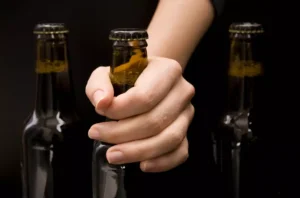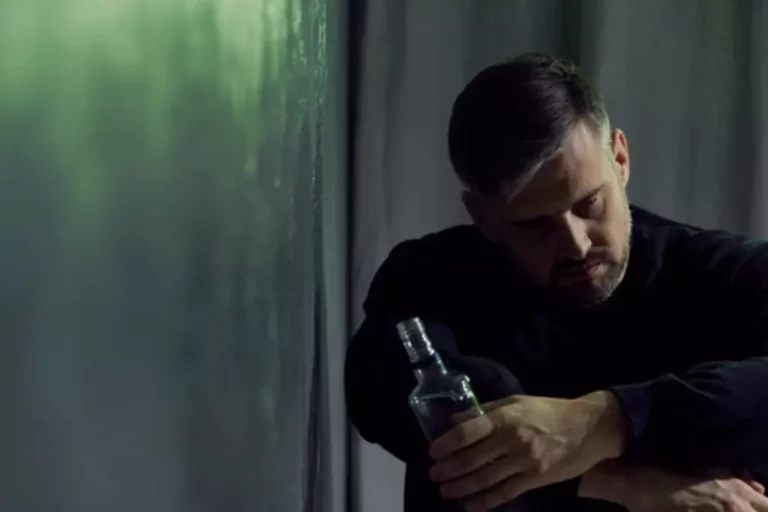Agenda47 on healthcare: Trump’s proposal on lowering drug prices


The shifts in thinking and behavior are critical because they lay the groundwork for changes in brain circuity that gradually help restore self-control and restore the capacity to respond to normal rewards. No matter which pathway of recovery a person chooses, a common process of change underlies them all. The well-researched science of behavior change establishes that addictive behavior change, like any behavior change, is a process that starts long before there’s any visible shift in activity. The endpoint is voluntary control over use and reintegration into the roles and responsibilities of society. Shortly after substance use is stopped, people may experience withdrawal, the onset of unpleasant physical and psychological symptoms —from irritability to shakiness to nausea; delirium and seizures in severe cases.
Where can you get support for addiction?
These drugs are not all in the same category, but they share some similar effects and dangers, including long-term harmful effects. As time passes, you https://ecosoberhouse.com/ may need larger doses of the drug to get high. As your drug use increases, you may find that it’s increasingly difficult to go without the drug.
Marijuana, hashish and other cannabis-containing substances
Learning what one’s triggers are and acquiring an array of techniques for dealing with them should be essential components of any recovery program. Withdrawal symptoms do not occur with all substances; for example, stopping hallucinogens or marijuana does not typically lead to withdrawal symptoms. Further, the intensity of withdrawal depends on the amount of drug usually taken and the duration of its effects. Withdrawal from such drugs as heroin, painkillers, alcohol, and benzodiazepine tranquilizers can be life-threatening, and medical supervision is generally advised. It is possible to be dependent on a substance without being addicted. Physiological dependence can occur with many different kinds of substances, including common medications.
- Impulsivity is thought to play its strongest role in the early stages of addiction, driving the motivation for seeking drugs.
- Exercise, listening to music, getting sufficient rest—all can have a role in taking the focus off cravings.
- Common addictive substances include alcohol, tobacco (nicotine), stimulants, hallucinogens, and opioids.
- Rock stars and promoters of the time, aware of the kindness of Dr. Dave and his staff, helped fund the clinic, which became known as the Haight Ashbury Free Clinic (HAFC).
When to see a doctor
The Diagnostic and Statistical Manual of Mental Disorders (DSM) avoids the terms addiction and recovery. Sustained remission is applied when, after 12 months or more, a substance is no longer used and no longer produces negative life consequences. Brains are plastic—they adapt to experience—and people can change and grow, develop an array of strategies for coping with life’s challenges and stressors, find new means of satisfaction and reward, and negotiate life ahead. Millions of people do, whether they were once compulsive users of opiates, alcohol, or gambling. There is enduring resolution of what once was problem behavior.


- But if you’ve misused drugs or alcohol in the past or have family members who have, you may be at a higher risk.
- During the intervention, these people gather together to have a direct, heart-to-heart conversation with the person about the consequences of addiction.
If left untreated, they can last a lifetime and may lead to death. It’s common for a person to relapse, but relapse doesn’t mean that treatment doesn’t work. As with other chronic health conditions, treatment should be ongoing and should be adjusted based on how the patient responds. Treatment plans need to be reviewed often and modified to fit the patient’s changing needs. Physical addiction appears to occur when repeated use of a drug changes the way your brain feels pleasure. The addicting drug causes physical changes to some nerve cells (neurons) in your brain.


- • Identity—shifting towards a new, positive view of oneself, one more aligned with one’s deeper values and goals, one built on self-confidence gained by acquiring new skills and new behaviors.
- The physical changes to the pleasure-experiencing centers of the brain induce physical changes to the prefrontal cortex, weakening the capacity for decision-making and impulse control.
- This means that over time, you may need to take more of the substance to experience its desired effects.
- Some people who’ve been using opioids over a long period of time may need physician-prescribed temporary or long-term drug substitution during treatment.
- Other possible causes of addiction include chemical imbalances in the brain and mental disorders such as schizophrenia or bipolar disorder.
Medications can also reduce withdrawal symptoms and encourage recovery. In heroin addiction, for example, your doctor may prescribe a medication called methadone or buprenorphine/naloxone (Suboxone). These medications can ease your recovery and what is drug addiction help you cope with the intense withdrawal stage. This means that over time, you may need to take more of the substance to experience its desired effects. Because of this, many people who use heroin continue to use it to avoid feeling sick.
Find more top doctors on
Help from your health care provider, family, friends, support groups or an organized treatment program can help you overcome your drug addiction and stay drug-free. Many rock stars helped fund Dr. Dave’s clinic, but some famous names include Jerry Garcia of the Grateful Dead, Janis Joplin, Jimi Hendrix, and George Harrison of the Beatles. The “Rock” doctors also helped rockers who overdosed or experienced drug abuse and dependence. When David E. Smith, M.D., now age 85, was a shiny new doctor just graduated from UCSF, he launched the first free medical clinic in the United States in San Francisco during the “Summer of Love” (1967). Dave,” Smith’s initial plan was to help some of the tens of thousands of young people flocking to the area for sex, drugs, and rock ‘n’ roll, most with little or no money.
Health Main Menu
- Support can go a long way in making the recovery process more successful.
- Recovery involves rebuilding a life— returning to wellness and becoming a functioning member of society.
- Shift perspective to see relapse and other “failures” as opportunities to learn.
- In one study, two-thirds of the adults relapsed in social situations in which they experienced urges and temptations to drink or use.
Every person needs a comprehensive recovery plan that addresses educational needs, job skills, social relationships, and mental and physical health. Therapy may be critical to resolving underlying problems that made escape into substance use so appealing in the first place. Peer or mutual support is not restricted to AA or NA; it is available through other programs that similarly offer regular group meetings in which members share their experiences and recovery skills.
No Comments